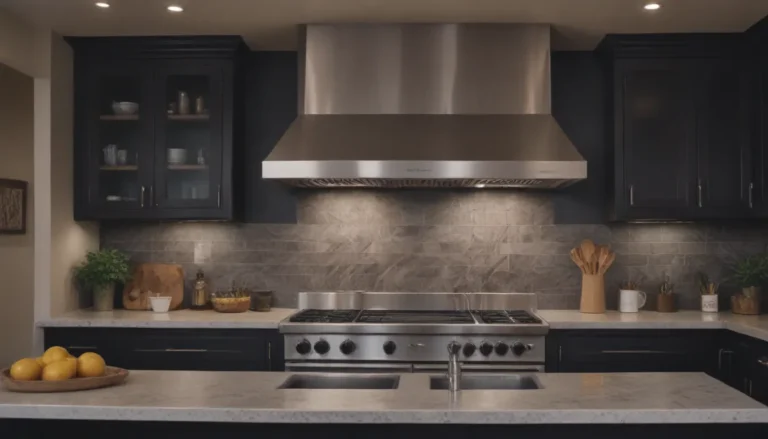Understanding the Duvet vs. Comforter Debate

If you’ve ever walked into a bedding store, you may have been overwhelmed by the different options available for topping your bed. Duvets and comforters are two popular choices, but what sets them apart? In this article, we’ll delve deeper into the duvet vs. comforter debate to help you make an informed decision about which bed cover is best suited for your needs.
What Is a Duvet?
Let’s start by understanding what exactly a duvet is. A duvet is a soft, puffy bed cover made from a cotton or polyester shell. It is typically filled with insulating materials such as down, feathers, or synthetic fabrics of varying thickness. What sets a duvet apart from a comforter is that it requires a removable duvet cover for protection and easy cleaning.
Pros of Duvets:
- Easy-to-change look
- Lightweight and easy to wash
- Warm for winter nights
- Plump, snuggly vibe
Cons of Duvets:
- Higher cost
- Challenging to insert into the cover
- Duvet drifts or slides without proper securing
- Often requires professional cleaning
What Is a Comforter?
On the other hand, a comforter is a quilted blanket filled with synthetic fibers. Unlike a duvet, a comforter is an all-in-one bed topper that does not require a separate cover. Comforters are usually less thick than duvets and overhang the sides of the bed more prominently.
Pros of Comforters:
- Bedding sets available for all budgets
- Easy to put on the bed
- Ideal for draping and layering
- Good for year-round use
Cons of Comforters:
- Bulky
- Might need additional blankets for warmth
- Often requires professional cleaning
- Designs are not easily changeable
Should You Get a Duvet or Comforter?
When choosing between a duvet and a comforter, it’s essential to consider your personal preferences and priorities. Here are some factors to keep in mind:
Comfort
Duvets offer a plush, luxurious feel that can make your bedroom feel cozy and inviting. However, they may be prone to shifting inside the cover, which can be disruptive to your sleep. Comforters, on the other hand, lay flat on the bed and work well for layering with other blankets or comforters for added warmth and comfort.
Price
Comforters are generally more budget-friendly than high-quality duvets. While comforters may require additional blankets for extra warmth, they are often part of affordable bedding sets. Duvets, especially those filled with down or feathers, tend to be pricier but offer superior insulation.
Design
If you enjoy changing up your bedding design frequently, a duvet may be the better option. Swapping out a duvet cover is an easy and cost-effective way to give your bedroom a fresh look. Comforters, on the other hand, have fixed designs that cannot be easily changed.
Cleaning
Maintaining cleanliness is crucial for bedding. Duvet covers are easier to wash than bulky comforters. While duvet inserts may require professional cleaning, removable covers can be washed at home. Comforters may also need professional cleaning, but some larger models can be washed at home in large-capacity washers.
Convenience
If you prefer a hassle-free option, a comforter may be more convenient as it does not require a separate cover. Duvets, on the other hand, can be tricky to insert into their covers, adding an extra step to changing your bedding. Consider your bed-making preferences and storage space before making a decision.
Climate
Consider your local climate when choosing between a duvet and a comforter. Comforters are suitable for hot summers but may require additional blankets in colder weather. A mid-range duvet can work year-round, but you may need to switch to a heavier duvet for colder months.
Sleeping Habits
Your sleeping habits can also influence your choice between a duvet and a comforter. If you share a bed and your partner tends to steal the covers, a drapey comforter that covers more of the bed may be preferable. However, if you prefer a snug, cocoon-like feel, a fluffy duvet may be more appealing.
Duvet vs. Comforter Sizes
It’s essential to consider the size of your bed when choosing between a duvet and a comforter. Duvets and comforters may vary in size from brand to brand, so it’s crucial to take accurate measurements before making a purchase. While a duvet and duvet cover may be smaller than a comforter designed for the same bed size, they may offer a puffier look.
Before choosing between a duvet and a comforter, consider your preferences, budget, and lifestyle. Both options have their unique advantages and drawbacks, so it ultimately comes down to personal preference. Remember that using a duvet as a comforter without a cover is not recommended, as it can lead to rapid dirt buildup.
In conclusion, whether you opt for a duvet or a comforter, both can provide warmth and comfort for a good night’s sleep. Take your time to compare the features of each option and choose the one that best suits your needs and style preferences. Don’t be afraid to experiment with different bedding options to find the perfect fit for your bedroom.





